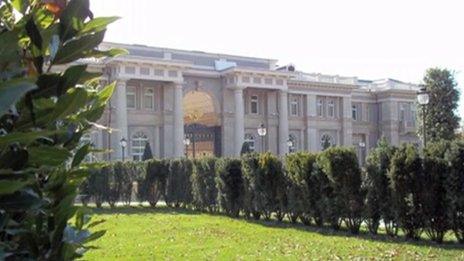Russia profile - Leaders
- Published
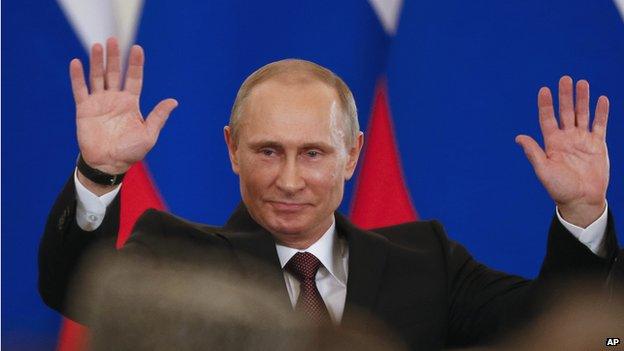
After the annexation of Crimea from Ukraine in early 2014, Mr Putin rode a wave of nationalistic fervour
President: Vladimir Putin
Vladimir Putin has been Russia's dominant political figure since his election as president in 2000, serving two terms and then a four-year stint as prime minister, before resuming the presidency in 2012.
Since his re-election against a token opponent, Russia's authorities have further tightened control over the media, marginalised genuine opposition, and adopted a stridently nationalist and anti-Western course to shore up domestic support, in contrast to a previous emphasis on stability and prosperity.
The last process accelerated with Mr Putin's tough response to the toppling of the pro-Russian government in Ukraine by pro-EU protests in early 2014.
Russia subsequently seized Crimea from Ukraine - a move that prompted Mr Putin's domestic approval rating to soar - and fomented a violent rebellion in the eastern provinces on Russia's border.
The following year, President Putin responded to the imperilled state of his ally President Bashar al-Assad in Syria, where Russia maintains its sole Mediterranean naval base, by sending warplanes to bomb the positions of rebel groups.
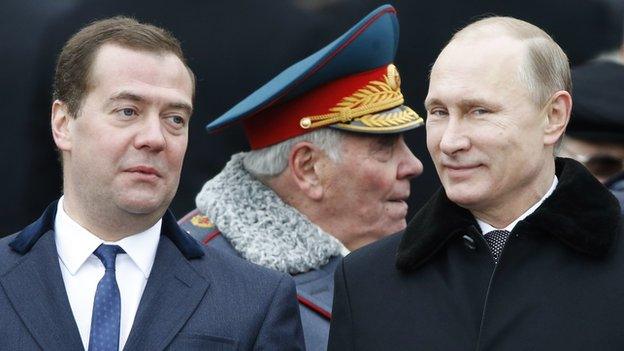
Mr Putin swapped jobs with Dmitry Medvedev (l) to return to the presidential office in 2012, prompting protests.
The president presents himself as a strong leader who took Russia out of the economic, social and political crisis of the 1990s and defends Russia's national interests, particularly against what he portrays as Western attempts to corner and foist cultural values on it.
Critics say that since taking power, Mr Putin has created an almost neo-feudal system of rule that concentrates control over key economic resources in the hands of a narrow circle of close associates, and is smothering economic dynamism, democratic development and a nascent civil society to protect itself.
Several of Mr Putin's rivals and opposition activists have sought safety abroad or ended up in prison, most prominently the former oligarch Mikhail Khodorkovsky, who spent 10 years in jail following his arrest on tax evasion and fraud charges in 2003.
KGB background
Born in St Petersburg in 1952, Vladimir Putin began his career in the KGB, the Soviet-era security police. From 1990 he worked in the St Petersburg administration before moving to Moscow in 1996. By August 1999 he was prime minister.
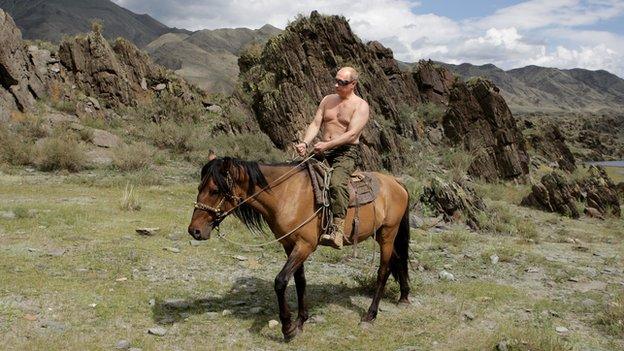
Russian TV has at time cultivated a macho image of Mr Putin, including - most famously - footage of him riding a horse bare-chested.
He was named acting president by his predecessor, Boris Yeltsin, and went on to win presidential elections in May 2000, having gained popularity for launching a successful offensive against Chechen rebels, following a mysterious series of deadly explosions in Russian cities. He won again in 2004.
Barred by the constitution from running for a third consecutive presidential term in 2008, he made way for his prime minister, Dmitry Medvedev, before the two swapped roles in 2012.
By this time, parliament had extended presidential terms from four to six years, so that Mr Putin - already one of Europe's longest-serving leaders - could potentially stay in power until 2024.
- Published17 April 2014
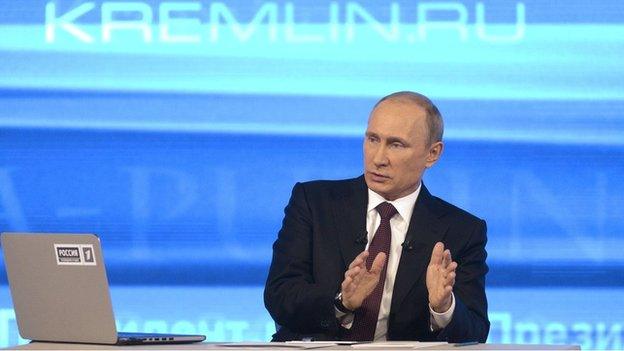
- Published28 March 2014
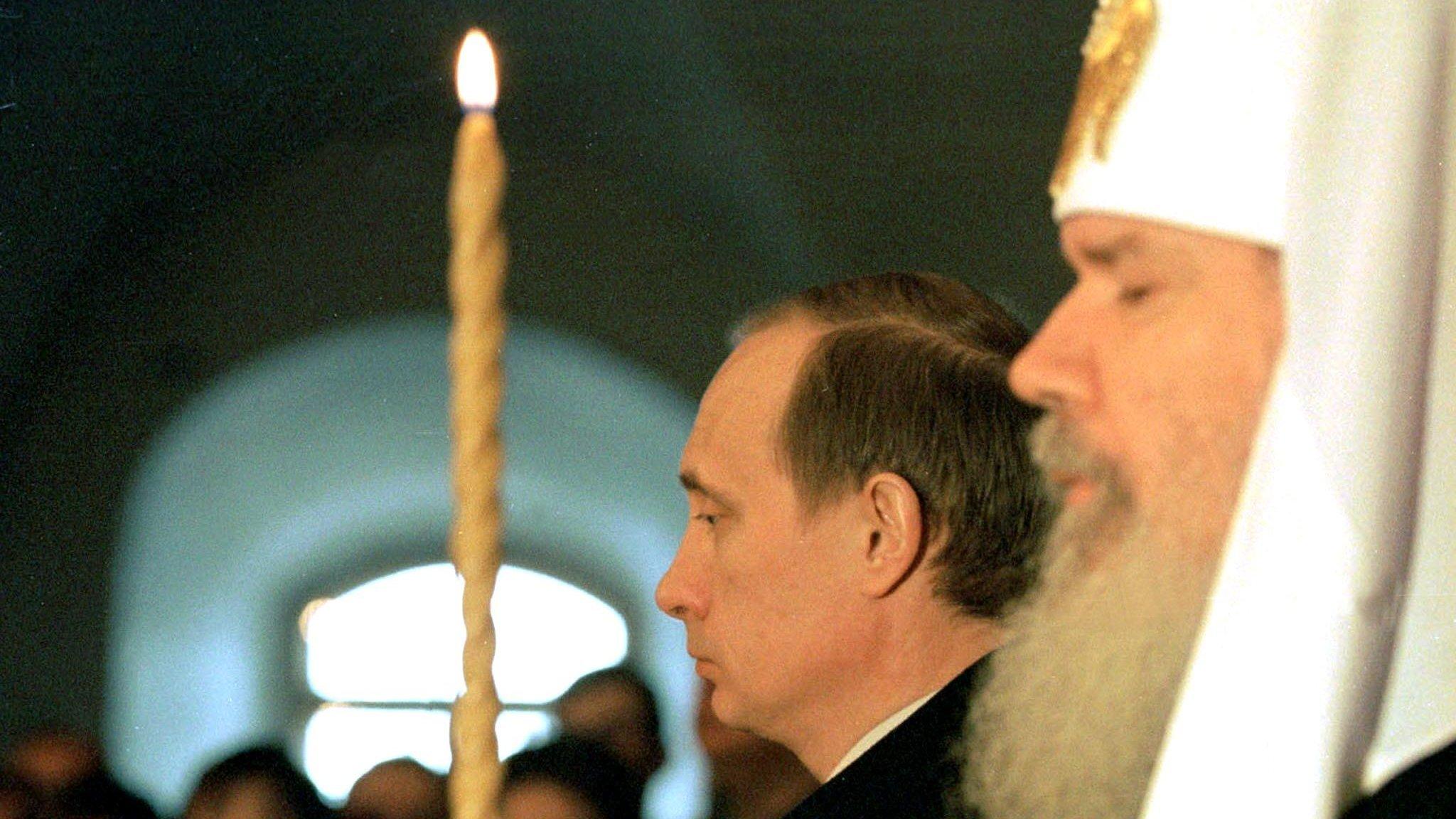
- Published18 July 2013
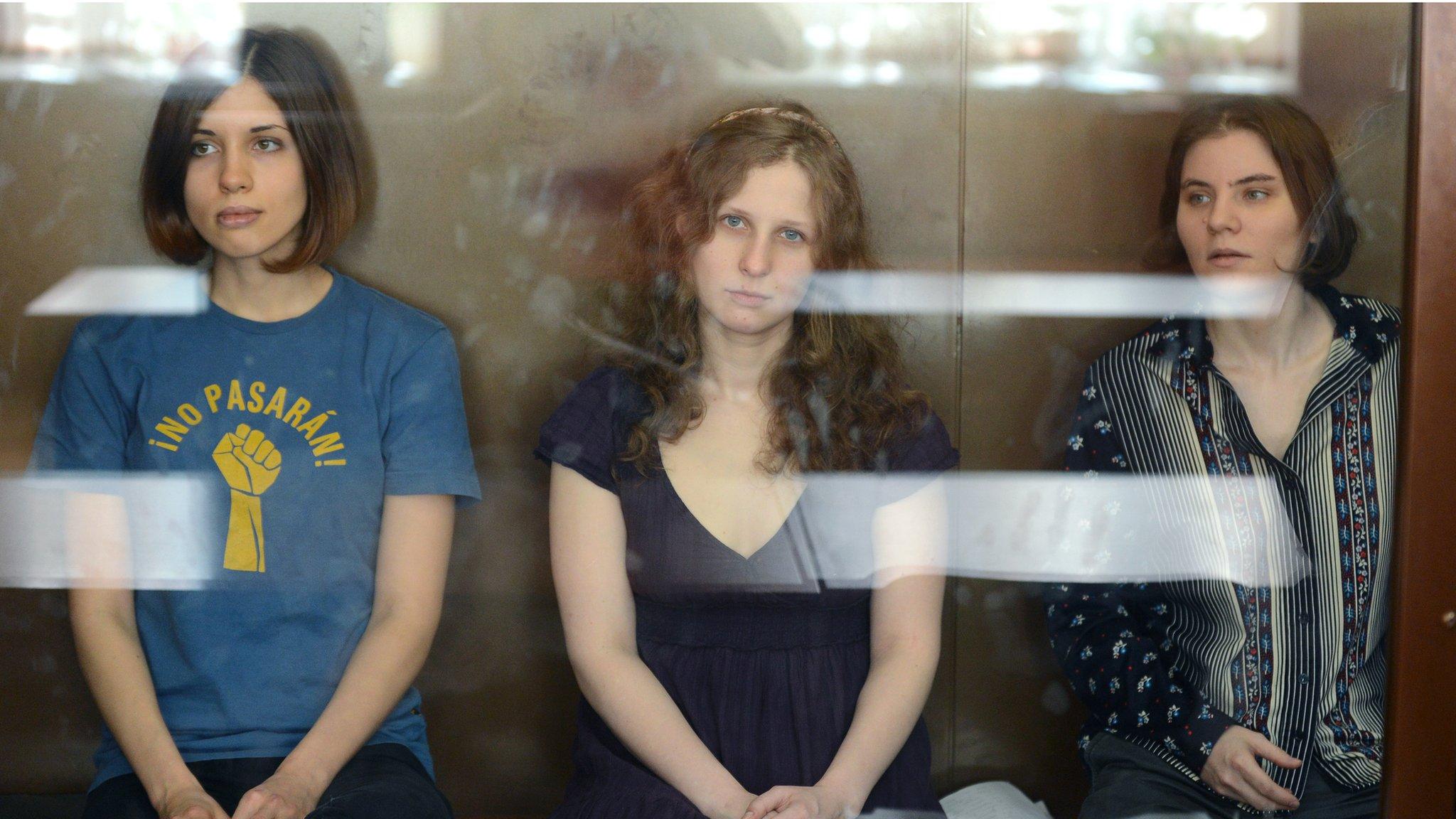
- Published17 March 2024
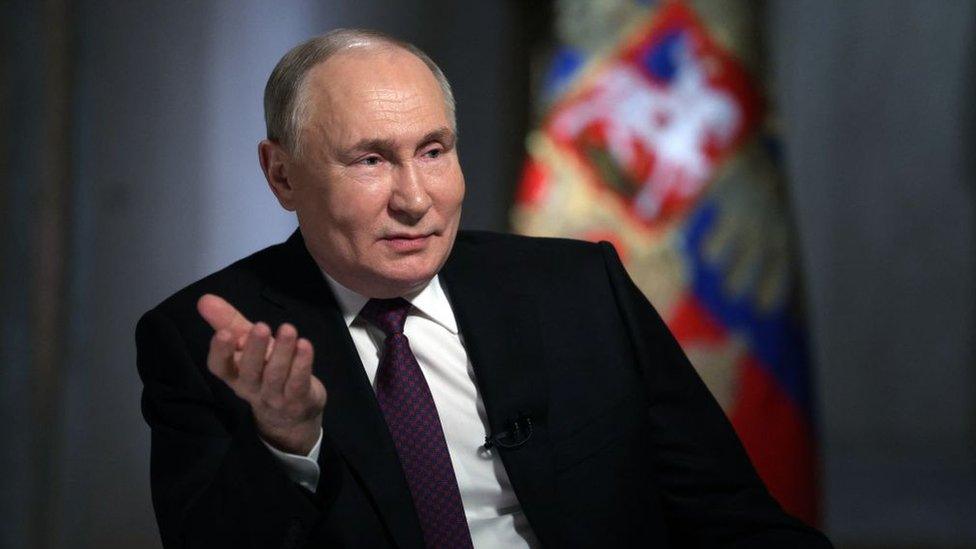
- Published4 May 2012
